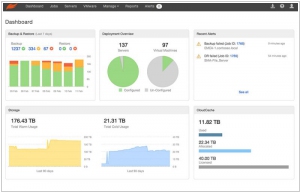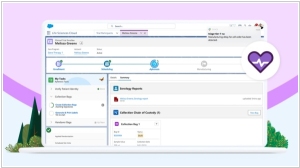Crashplan vs Druva
August 11, 2023 | Author: Michael Stromann
12
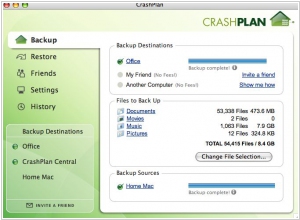
CrashPlan backup software offers the best way to back up and store personal, business and enterprise data securely - offsite, onsite and online in the Cloud. CrashPlan makes it easy to protect your digital life, so you can get back to what’s important in real life. Even when you step away, CrashPlan is busy at work protecting all your important files. Music, photos and documents are all automatically, continuously protected, so you can get back to whatever life throws your way.
Crashplan and Druva are both cloud-based backup and data protection solutions, but they have distinct features and approaches. Crashplan, offered by Code42, focuses on providing robust backup and recovery capabilities for individuals and small businesses. It offers continuous and automatic backups, unlimited storage, and strong encryption for data security. Crashplan's user-friendly interface and intuitive setup make it accessible to non-technical users.
On the other hand, Druva is an enterprise-grade data protection and management platform that goes beyond just backup and recovery. It offers comprehensive data governance, compliance, and e-discovery capabilities. Druva's unique approach combines backup, disaster recovery, and long-term retention with advanced features like global deduplication, intelligent tiering, and built-in analytics. It is designed to meet the needs of large organizations with complex data management requirements.
See also: Top 10 Online Backup services
On the other hand, Druva is an enterprise-grade data protection and management platform that goes beyond just backup and recovery. It offers comprehensive data governance, compliance, and e-discovery capabilities. Druva's unique approach combines backup, disaster recovery, and long-term retention with advanced features like global deduplication, intelligent tiering, and built-in analytics. It is designed to meet the needs of large organizations with complex data management requirements.
See also: Top 10 Online Backup services
Crashplan vs Druva in our news:
2021. Online Backup service Druva raises $147M
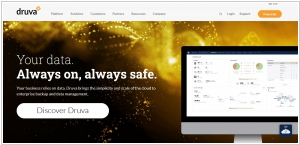
Announcing the closure of a $147 million funding round at a valuation exceeding $2 billion, Druva specializes in offering cloud data backup services. Earlier this month, the official announcement was made regarding the partnership between Dell and Druva, a collaboration that was initially reported in January of this year. The alliance with Dell positions Druva with a substantial customer base to target for future sales opportunities. This strategic move has the potential to significantly bolster the growth of the company, solidifying its position as a prominent player in the industry.
2017. Cloud data management startup Druva raised $80M
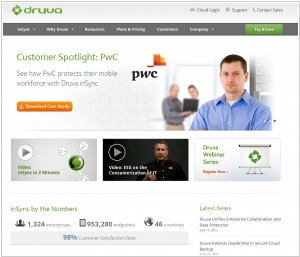
Druva, a platform that specializes in backup and data protection for around 4,000 business networks, including endpoints, infrastructure, and applications, has secured $80 million in funding. The company aims to strengthen its focus on offering data management and protection solutions for enterprises utilizing public cloud platforms. This puts Druva in direct competition with industry giants like EMC, Commvault, and Veritas, as well as other data management startups like Rubrik. With this latest funding round, Druva's total raised capital approaches $200 million. To put this into perspective, one of its competitors, Rubrik, achieved a valuation of $1.3 billion after raising $180 million earlier this year. Druva was last valued at approximately $637.5 million during its previous funding round in 2016 (raising $51 million). The company reports a remarkable growth rate of over 300% in the past year, boasting prominent customers such as Continental, Emerson, Flex, and Fujitsu.
2017. CrashPlan shuts down its consumer cloud backup service to focus on business version
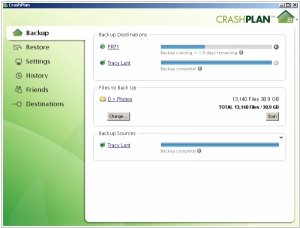
Popular cloud backup service CrashPlan has announced its decision to discontinue home subscriptions and shift its focus towards its business version, Code42. This move provides customers with a little over a year to find an alternative solution. Services like CrashPlan, Backblaze, and Carbonite have simplified the process of online backup, allowing users to subscribe and install a background app that automatically handles the backup process. CrashPlan has been a leading player in this market. However, the company has realized the potential for greater profitability by catering to larger enterprise customers. Hence, Code42 is providing ample time for its customers to transition away from CrashPlan, recognizing that uploading an entire hard drive can be a time-consuming process.
2015. Code42 snares $85M for its Crashplan
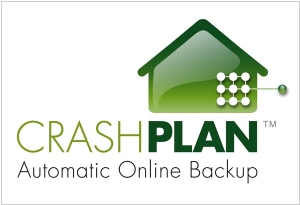
Code42, the company behind the enterprise backup tool Crashplan, has announced a significant funding round of $85 million. Originally developed as a laptop backup solution, Crashplan transitioned to cater to the enterprise market and has been experiencing rapid growth, with a yearly increase of 100 percent, as stated by Payne, a representative of Code42. One of the key advantages of Crashplan is its user-friendly nature, often requiring minimal IT involvement once implemented. Automatic file backups are performed, and Payne asserts that end users can restore files themselves in the majority of cases. The tool is platform-agnostic, extending its backup capabilities to Macs and Linux machines, and it leverages cloud storage, enabling users to retrieve their files from anywhere, including new devices. It's important to distinguish backup from storage: while storage involves keeping data on a hard drive, backup serves as a contingency plan in case of data loss, allowing users to recover their files. Crashplan focuses on backing up laptops and mobile devices rather than the entire data center.

